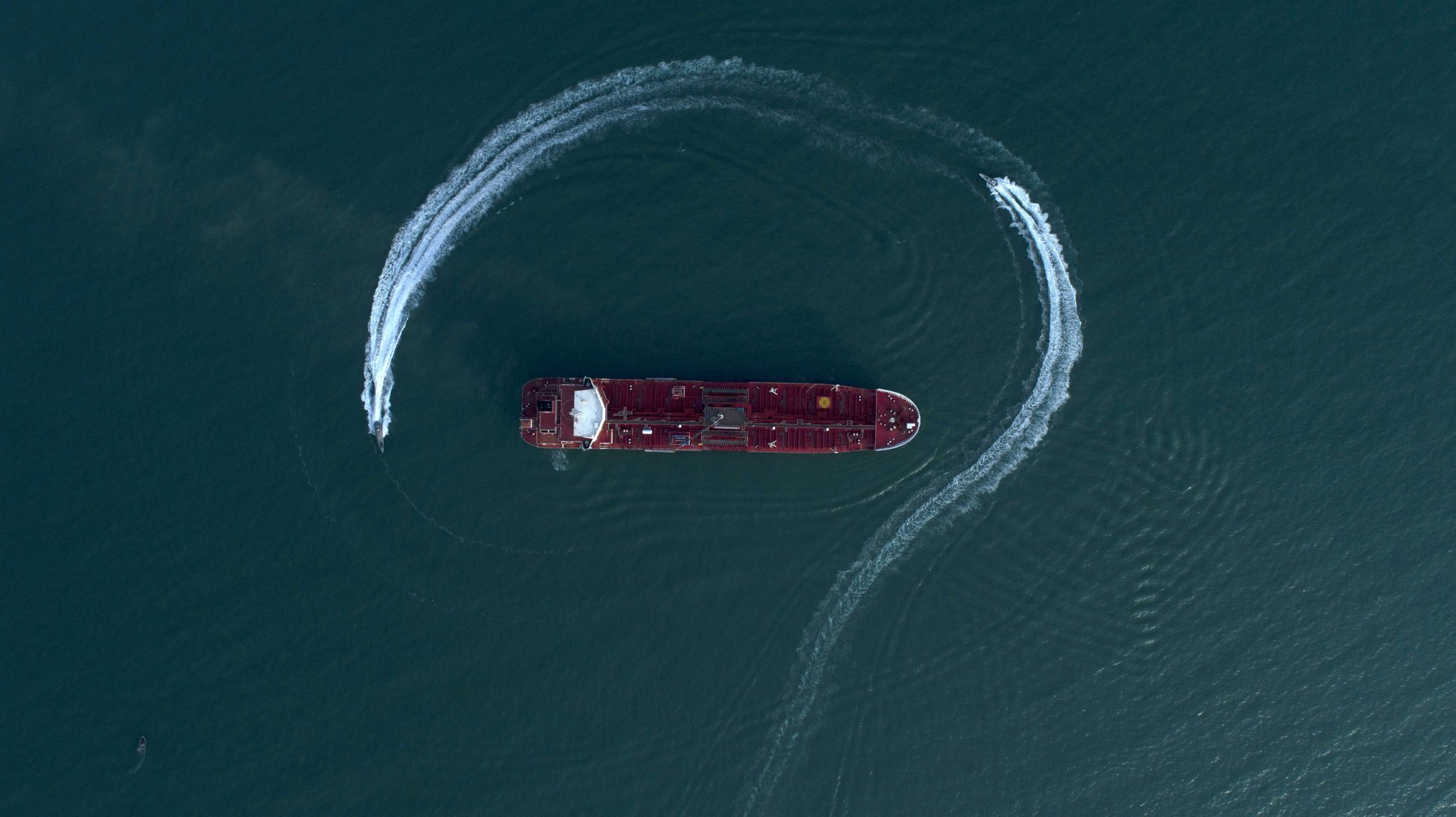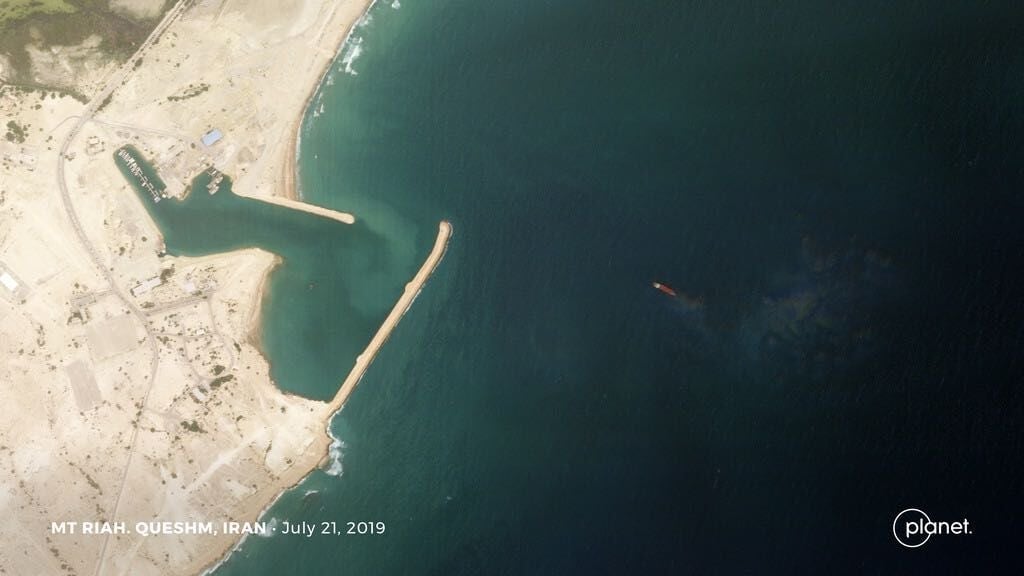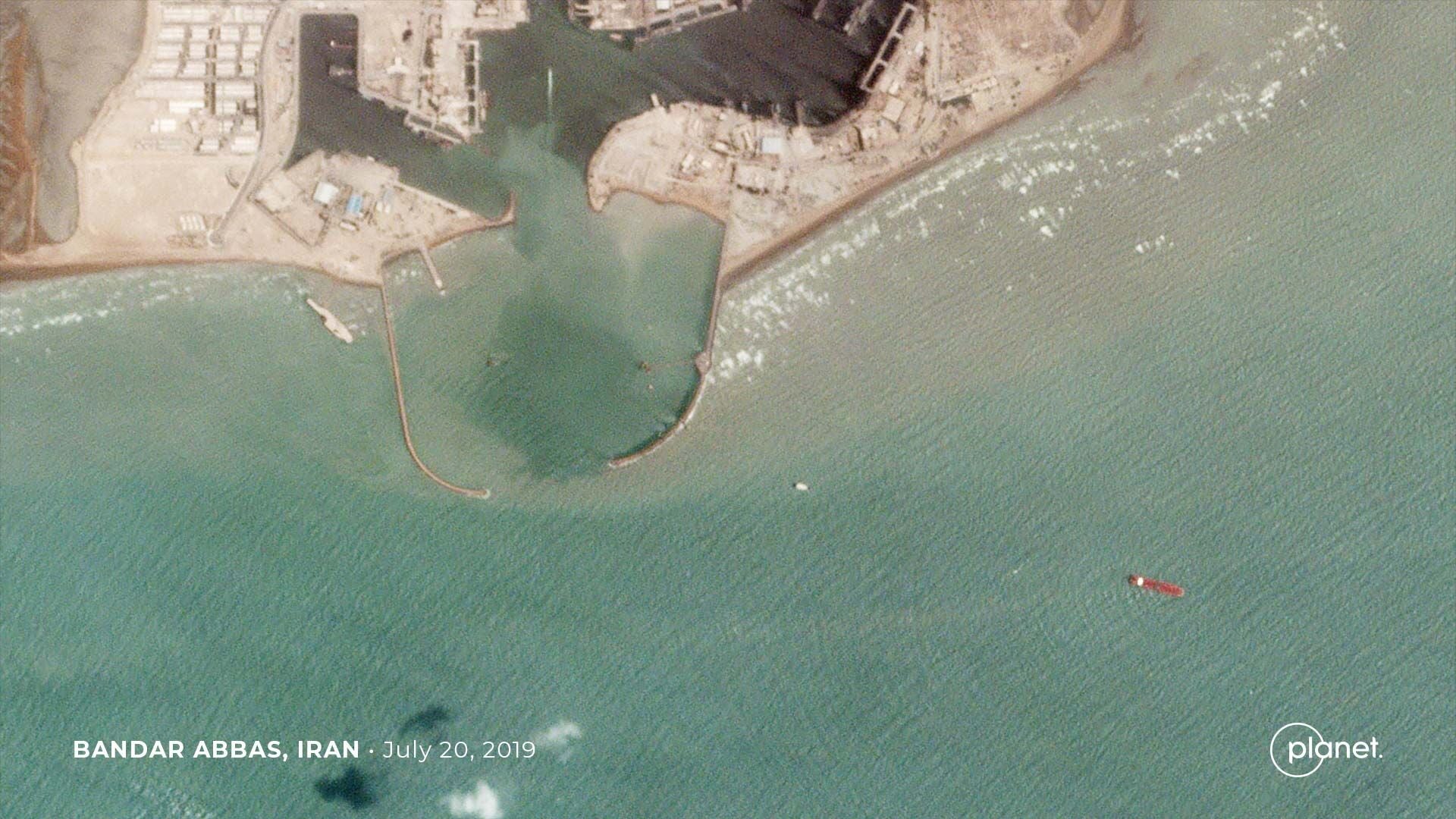It’s harder than ever to hide an oil tanker
When Iranian naval forces seized two oil tankers last week, they shut off the radio transponders that broadcast their location and identity to surrounding ships, and indeed the world.


When Iranian naval forces seized two oil tankers last week, they shut off the radio transponders that broadcast their location and identity to surrounding ships, and indeed the world.
But that didn’t hide the missing ships for long. Imagery from satellites operated by the company Planet spotted the two seized tankers moored outside of Iranian Navy ports along the Strait of Hormuz. Control of the narrow sea channel is vital because about one-fifth of the world’s petroleum supply passes through in a given year.

Companies like TankerTrackers typically monitor this data for up-to-the-minute insights into global oil markets. This week, they’ve been helping monitor rising geopolitical tensions between Iran and the west. Massive oil-transporting ships, typically owned and registered in different countries and operated by crews with little connection to those national conflicts, have become the pawns in the struggle.

Tensions between the US and Iran, never low, have risen considerably since the Trump administration backed out of a 2015 agreement between the two countries, the UK, France, Germany, Russia and China. In the deal, Iran agreed to reduce its stockpiles of enriched uranium, which can be used for producing both nuclear energy and nuclear weapons. In exchange, the US and other countries agreed to lift debilitating economic sanctions. The US violated that agreement in 2018, however, when it reimposed sanctions. Iran, for its part, continued to adhere to the deal until July, when it finally announced it would begin to enrich uranium again.
In the last few months, the friction has only gotten worse. Iran shot down a US drone flying over the Persian Gulf on June 20 with a short-range missile, following minor attacks on several oil tankers that the US blamed on Iran, though it provided no evidence. The US then increased military deployments in the region, and downed an Iranian drone with electronic counter-measures on July 17.
The two vessels in the satellite images were seized last week. The smaller, UAE-owned Riah was accused by Iran of smuggling oil when it was seized at gunpoint on July 14. The Stena Impero was allegedly seized in Omani waters on July 19, making the move extra-questionable under international law. Because the vessel is registered in the United Kingdom, its capture is seen as retaliation for British troops’ July 4 seizure of a tanker alleged to be carrying Iranian oil to a Syrian refinery in violation of international sanctions.
Negotiating the release of the tankers promises to be a tricky process. Iran has called for the end of sanctions that are crippling its economy, but the US and the United Kingdom want to see action on issues ranging from nuclear and missile development programs to the country’s support for groups that use terror tactics. The Trump administration declared the Iranian Revolutionary Guards a terrorist group this year, citing support for the 1996 Khobar Towers bombing that killed 20 people, including 19 American US Air Force personnel, and more dubiously, a 2011 plot to assassinate the Saudi ambassador.
Though Iran could continue to escalate its campaign against oil traffic in the Persian Gulf, its leaders will wish to avoid a full-scale military conflict with the west that they would be unlikely to win.